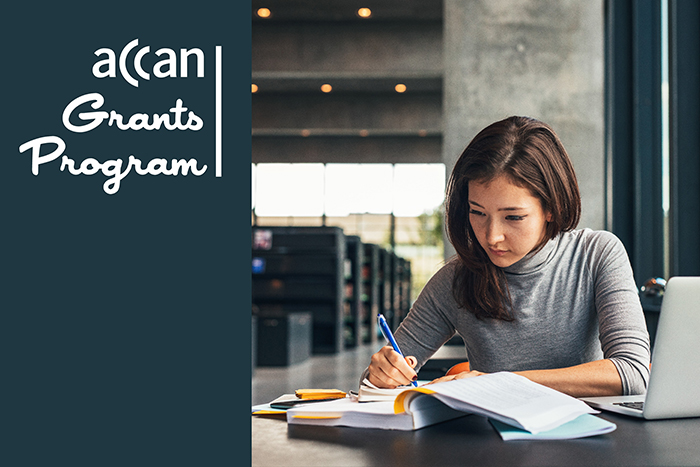- Details
Institute for Social Research, Swinburne University
Grant round: 2010
Read more: Home Internet for Indigenous Consumers in Remote Australia
- Details
 Contact Us
Contact Us
We encourage you to talk to us before applying for an ACCAN Grant. The Grants Team is available to help develop your project idea, ensure it's within scope, and with enough notice, we may be able to review a draft and help you make the most of your application.
The best way to reach us is via email - let us know a good time & number to phone you, or simply pop your questions & project ideas into the email. We will get back to you as soon as we can:
Email: grants @ accan.org.au
Phone: 02 9288 4000 (ACCAN reception) or via the National Relay Service
Subscribe
To keep up to date with all things grants related and to better understand ACCAN's work, subscribe to the mailing lists below:
- Details
Cyberspace Law and Policy Centre, University of New South Wales
Grant round: 2010
Read more: Communications Privacy Complaints: In Search of the Right Path
- Details
On Thursday 6 May, the Australian Government released the long awaited report known as the National Broadband Network (NBN) Implementation Study.
Please go to the DBCDE website for a copy of the NBN Implementation Study.
Read more: NBN Implementation Study
Write comment (2 Comments)- Details
ACCAN is pleased to announce its Board of Directors for 2010-2011. In accordance with the ACCAN Constitution the ACCAN Board (the Board) will consist of nine (9) elected Directors.
Read more: ACCAN Board for 2010-11
Write comment (0 Comments)- Details
At some time in the near future you’re likely to use a ‘1800’ or ‘13’ telephone service to make a complaint, access essential financial or legal advice or just order a pizza. ACCAN has launched a campaign to ensure you're able to access these numbers.
Read more: Join us in the crusade! ACCAN's free call campaign
Write comment (0 Comments)- Details
Last month we hosted the first-ever ACCAN National Conference and Consumer Summit at the State Library of Victoria. ACCAN would like to thank the 150 delegates who attended for an exciting, inspiring and thought-provoking two days.
Read more: Conference materials now available
Write comment (0 Comments)- Details
Dr Denise Wood was recently awarded the inaugural Telstra-TJA Christopher Newell Prize for Telecommunications and Disability for her paper titled “Communicating in Virtual Worlds through an Accessible Web 2.0 Solution.”
Dr Wood, a researcher and senior lecturer in the School of Communication, International Studies and Languages at the University of South Australia, undertook the research as part of an Australian Learning and Teaching Council project to improve access to 3D virtual-learning environments and identify the benefits of Web 2.0 and 3D Virtual Worlds such as Second Life for people with disabilities.
Read more: Dr Denise Wood talks to ACCAN about Web 2.0 and 3D virtual worlds
Write comment (0 Comments)- Details
Peak communications consumer body ACCAN says the findings from the $25 million National Broadband Network (NBN) Implementation Study offers good news for Australians, who could pay prices comparable to today’s retail costs in exchange for higher speed broadband with higher download limits, provided there is vigorous competition in the retail market.
Read more: Study finds Australians could pay less and get more from NBN
Write comment (0 Comments)- Details
The Australian Communication Consumer Action Network (ACCAN) welcomes today’s announcement of an inquiry into customer service by the Australian Communications and Media Authority (ACMA) at the CommsDay Summit in Sydney.
Read more: Record levels of customer complaints spark ACMA inquiry
- Details
Australia's 22 million consumers and 2 million businesses are not receiving adequate attention in the current debate about telecommunications reform according to ACCAN, Australia’s peak communications consumer organisation.
- Details
The Australian Communications and Media Authority doesn’t seem to understand the needs of consumers Against the advice of the Australian Competition and Consumer Commission, the ACMA has decided not to implement a default bar on subscription text message services. Instead, the ACMA has sided with industry in a soft-regulatory approach that is just what the revenue hungry and consumer indifferent telecoms companies want. It’s just another decision that casts doubt on whether the ACMA is actually up to the job of protecting consumers.
Read more: ACMA makes a bad call on Mobile Premium Service barring
Write comment (0 Comments)